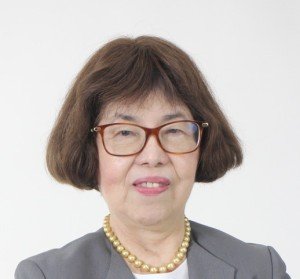English Translation: A Must!
31 August 2022

There is no disputing the advantages of the Patent Cooperation Treaty (PCT) system which, as of April 2022, has 156 member countries. Not only is the applicant able to defer national phase application costs but is given time to assess the strength of the application, and to look for licensees or buyers of the resulting patent rights. The deadlines and requirements for entering the national phase are different for each country, hence, it is important that the agent or patent attorney appointed by the applicant to handle the application, e.g., filing the formal documents and paying the fees, among other obligations, is familiar with the PCT rules being enforced in his jurisdiction.
This is the unfortunate story of two applications in the name of ParexGroup (the applicant), a company headquartered in France and in the business of manufacturing and marketing construction products. On April 26, 2019, the applicant filed with the Intellectual Property Office of the Philippines (IPOPHL) said patent applications, which were given application No. 1-2019-550072 for “Dry Construction Composition which can be Wet-Sprayed by Means of a Screw Pump and Comprising a Binder and a Bio-Based Filler-Preparation and Uses of such Composition,” and No. 1-2019-550073 for “Multilayer Insulating Construction System for a Building – Manufacturing Process Thereof- Dry Composition of Use in this Manufacture.” Both national phase entry applications claimed priority to an earlier applications filed on November 3, 2016, and included the following: i) description in French ii) claims in French; iii) abstract in the English translation and iv) drawings with text in English translation.
The Bureau of Patents (BOP) issued notices of invalid national entry since the patent applications were not filed in the English language. The applicant filed its responses stating that the abstracts and drawings are in English, and attached to its responses a set of the patent applications with the documents (abstracts, descriptions, claims and drawings) in English. The BOP reiterated its findings that the applications did not comply with the Philippine Rules on PCT (PRo-PCT). Dissatisfied, the applicant appealed to the Director of Patents and stated that it has submitted the required English translations, and that it should have been given the opportunity to submit the English translations. The director, however, dismissed the appeal.
As allowed by the Patent Rules, the applicant filed its appeal before the Office of the Director General (ODG) of the IPOPHL, and stated that:
-
It has substantially complied with the English translation requirements with the abstract and the text of the drawings of its patent applications being in English at time of filing;
-
The denial of its patent applications is inconsistent with the PCT, the IP Code of the Philippines, and the IPOPHL Rules;
-
The description and claims of its patent applications are already available online in the website of the WIPO; and
-
It should have been given the opportunity to correct deficiencies in its patent applications, and has subsequently submitted the English translations of the description and claims.
The BOP director filed his comment to the appeal and stressed that Rule 35 of the PRo-PCT requires that the entire elements or documents such as the description, claims, drawings, and amendments thereto, and abstract under PCT Articles 19 and 34 as amended, must be submitted in English, and if anything is missing, the national phase entry is invalidated, and the Pro-PCT does not provide for rectification, nor does it allow the subsequent filing of the English translations of any of the aforementioned documents.
On June 9, 2022, the ODG sustained the BOP Director and dismissed the appeal. The ODG explained that the applicant’s applications claimed the priority filing date of November 3, 2016, and therefore had 30 months therefrom, a reasonable period, to file the national phase applications in the Philippines, which it did on April 26, 2019, and had the same 30 months to furnish the IPOPHL a copy of the said international applications in English. The applicant, however, did not file the said English translations but only did so when the BOP issued its notices of invalid national entry applications. Further, the PRo-PCT allows for a one-month extension from the 30th month, subject to the payment of extension fees, to submit the national phase applications with the English translations. But the applicant did not do so, and must, therefore, suffer the consequences of its inaction.
The ODG ruled that the Pro-PCT is explicit that the applicant must submit the English translations of the patent applications including the description and claims, which were written in French. The ODG further ruled that the applicant cannot rely on Article 26 of the PCT which provides that no designated office (such as the IPOPHL) shall reject an international application on the grounds of noncompliance without first giving the applicant the opportunity to correct the said application. However, said Article 26 also provides that the opportunity to correct can only be done to the extent that the national laws will allow correction. The PRo-PCT does not allow for such correction.
Finally, the ODG stated that “a patent is granted to provide rights and protection to an inventor after an invention is disclosed to the public, it also seeks to restrain and prevent unauthorized persons from unjustly profiting from a protected invention. Thus, there are procedural rules on the application and grant of patents established to protect against any infringement. To balance the public interests involved, failure to comply with strict procedural rules will result in the failure to obtain a patent.”








